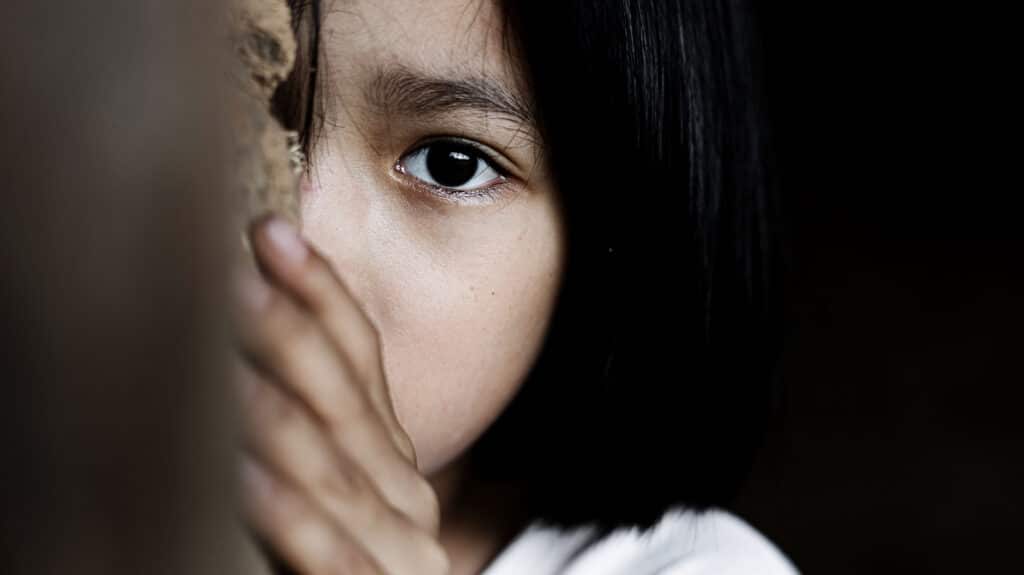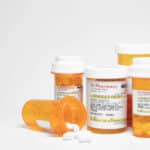Methamphetamine (or “meth”) is among the most dangerous illicit drugs in the world. As a highly addictive central nervous system stimulant, it poses serious health risks, including psychosis, permanent organ damage, and heart attack. The drug also takes a severe toll on the well-being of those who are exposed to it in utero or in childhood. Here’s what you should know about the effects of methamphetamine on young children and adolescents.
Prenatal Methamphetamine Exposure
Some caregivers expose their children to meth by using the drug while pregnant. When someone uses meth while pregnant, the drug can cross the placenta and impact the developing fetus. This prenatal meth exposure increases the risk of premature birth and low birth weight. The baby also faces a higher risk of short-term health issues, including decreased arousal, increased stress, and poor movement quality.
Meth Withdrawal Symptoms
In addition, some babies experience meth withdrawal symptoms. These symptoms usually last a few weeks to a few months after birth, which may may include:
- shaking
- tight muscles or poor muscle control
- high-pitched cry
- sensitivity to touch, light, or other stimuli
- sleeping too little or too much
- difficulty eating
- difficulty breathing
Developmental & Behavioral Problems
Many babies also display long-term effects of prenatal meth exposure, including developmental delays. According to the National Institute on Drug Abuse (NIDA), meth-exposed children often experience delayed motor development by ages 1 and 2. Also, once they reach school age, these children are more likely to display developmental and behavioral problems such as:
- impairments in cognitive function, including poor verbal memory and impaired visual-motor integration
- symptoms of attention-deficit/hyperactivity disorder (ADHD), including poor attention, poor self-control, and hyperactivity
- irritability and aggression
- emotional reactivity, anxiety, and depression
Childhood Methamphetamine Exposure
Often, a parent who uses meth while pregnant will keep using the drug after their child is born. Children who grow up around methamphetamine use face a high risk of child abuse and neglect. That’s because their caregivers typically struggle to focus on anything besides meth. As a result, they may fail to provide essential forms of care, including:
- supervision
- a proper amount of food
- proper sleeping conditions
- grooming and hygiene
- medical care, including check-ups and immunizations
Domestic Violence & Sexual Abuse
Meth-exposed children are also more likely to experience domestic violence and sexual abuse, as meth use can lead to unpredictable and violent behaviors. They may also endure psychological abuse, leading to persistent feelings of fear, shame, and worthlessness.
Unsafe Environments
Many meth-exposed children grow up in dirty, unsafe environments. Their homes are often filled with garbage, insects, and drug paraphernalia. Some children even grow up in meth labs (places where people illegally manufacture meth). These labs contain extremely toxic, flammable chemicals. When exposed to these chemicals, a child may experience issues such as:
- headache
- fatigue
- dizziness
- nausea
- lack of coordination
- chest pain
- shortness of breath
- increased risk of infection
- irritation of the eyes or skin
- chemical burns
- poisoning
- respiratory illness
- damage to the immune system, kidneys, liver, brain, or heart
- increased risk of leukemia, lymphoma, and other cancers
Children in meth labs may also encounter fires or explosions. According to the U.S. Department of Justice’s Office for Victims of Crime, fires and explosions lead to about 15% of meth lab discoveries. Meth labs also tend to contain various weapons, including loaded guns, as well as dangerous booby traps.
Foster Care
Due to the above risks, meth-exposed children often end up in foster care. These children are less likely to be reunited with their caregivers compared to children whose caregivers battle other types of drug use.
Problems As Adults
All of these traumatic experiences can affect a child well into adulthood. As they become teenagers and adults, many meth-exposed children struggle with issues such as:
- mental health problems, including anxiety, depression, and post-traumatic stress disorder (PTSD)
- learning disabilities
- substance use disorder (drug addiction)
- relationship problems
- criminal behavior
- unemployment
- poverty
- homelessness
Meth Addiction Treatment Options
When left untreated, meth addiction destroys lives. Some of the most effective treatment options include:
- medical detox, in which doctors help you safely stop using drugs with minimal withdrawal symptoms
- mental health counseling, in which a therapist helps you manage drug cravings and any mental health concerns that may have contributed to your substance abuse
- support groups, in which you can discuss your experiences with other people recovering from addiction
- aftercare planning, in which doctors help you identify strategies to reduce your risk of relapse, such as ongoing therapy, regular exercise, and assistance with education, employment, or housing
If you or someone you love struggles with methamphetamine abuse, please reach out to Northeast Addictions Treatment Center. Our board-certified healthcare providers offer personalized, evidence-based care to help you or your loved one build a drug-free life.
People Also Read:
Sources:
Frontiers in Pharmacology — The Adverse Effects of Prenatal METH Exposure on the Offspring: A Review
National Center on Substance Abuse and Child Welfare — Supporting Children Affected By Parental Methamphetamine Use
National Institute on Drug Abuse — What are the risks of methamphetamine misuse during pregnancy?
National Library of Medicine: MedlinePlus — Methamphetamine
Office for Victims of Crime — Dangers to Children Living at Meth Labs
State of Maine Department of Health and Human Services — Methamphetamine: Children At Risk





